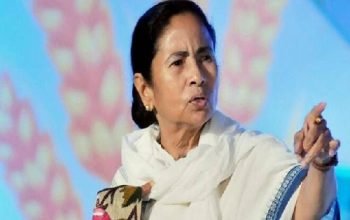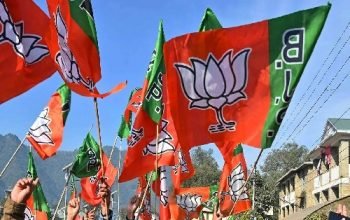By Insha Warsi
There is a stereotype negative narrative surrounding Muslim women in India. They are viewed as being out of the world where every move of their life is controlled by religious dogmas issued from time to time by various religious leaders and scholars. It is believed that they are strictly controlled by Muslim Personal Law. In reality, thousands of Muslim women from different States and Union Territories, do not look the same or sound same, while contributing towards nation building in multifarious ways.
There are thousands of Muslim women who have made mark in unconventional fields (assuming that people already know about the Muslim women who have made their mark in the conventional fields). Recent distribution of Zard Sitara Awards at Kolkata presents us the opportunity to break the stereotype associated with Muslim women. Noteworthy amongst them included Sainaba Yousuf from Palakkad, Kerala making her mark in the field of agriculture, Suraiya Bano from Bhilai, Chhattisgarh, Zainab Khan from Meerut, UP, shining in the field of education. The challenges that Uzma Firoz faced while starting a career as a costume jeweler and succeeding despite all odds, Saboohi Aziz marking her presence in NGO like All Bengal Muslim Women’s Association while working to provide young Muslim girls a platform where they can express their talent are guiding lights for millions of Muslim women who fear breaking the stereotype.
The study of early Islamic history would reveal that Muslim women enjoyed the freedom of movement and took an active part in all walks of life. They were known as rulers, teachers, traders and companions of the Prophet. In fact, they defined success on their own terms and proved that they are the real architects of society. Some of the well known names whose exploits and achievements deserve mention include Hazarat Aisha, wife of Prophet Mohammad who made an enormous contribution to the cause of Islam through her intelligence and scholarship beside being an important narrator of Hadith. Her wisdom and ability to learn, made her superior to many men of her time. This shows us that it was not Islam that forced the women backward but the half learned preachers of Islam who made the Islam orthodox and alien for women. In fact, Prophet Muhammad always believed in women upliftment. The teachings of the Holy Quran did not only relieve womankind from innumerable troubles and the plight of inhuman treatment, but also elevated their status to the dignity par excellence.
The only course of action that will ensure progress and success for the Muslim women is to follow the footsteps of its glorified successful predecessors: both from the Prophetic times as well as from the contemporary era. Examples cited above shows us that an improvement in educational level would directly influence Muslim Women’s socio-economic and political status, but achievements towards this end depend largely on the attitude of the people towards gender equality.
In modern times, the quest for women empowerment is integrally related to the issue of leadership. Addressing present-day realities, while a significant number of Muslim women have competently led their nations by holding topmost offices, scores of others are still being held in the shackles of conservatism and religious dogmas. Keeping in mind the complex realities of today’s world in the context of Islam, it is important to shed light on the real political status of Muslim women in the light of Quran, Sunnah and Juristic discourse. Resolution of the issue of leadership can significantly impact women empowerment from Islamic perspectives.
(The author’s Fellow in Journalism and Francophone Studies, Jamia Millia Islamia. His views are personal. It has nothing to do with public records management.)




